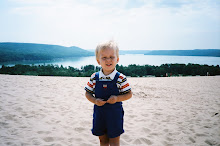but since i know that most of you have already finished the other two and are just itching for a new book, we'll proceed.
 you may have guessed this was the book i was going to choose--gratefulness, the heart of prayer because i have been quoting it more than a few times. suffice it to say this book is chalk full of quotable writing. the thoughts are very penetrating and insightful on a deep level.
you may have guessed this was the book i was going to choose--gratefulness, the heart of prayer because i have been quoting it more than a few times. suffice it to say this book is chalk full of quotable writing. the thoughts are very penetrating and insightful on a deep level."To live a life open for surprise, in spite of all the dying which living implies, makes us ever more alive."
but for all the quoting, this is a book that greatly surprised me with its overall cohesion. it's not that every chapter builds on the others--but the principles of relation that he applies to different virtues somehow always tie in with each other. he can compare the relation between faith and beliefs and somehow draw the same distinction between hope and hopes.
there is almost a systematic approach to the life of faith here, with gratefulness underneath it all. but to use the word "systematic" seems almost criminal. it's easy to read the book and just not realize it's all interconnected, to think that it is just another collection of random thoughts on the spiritual life--but it is much more. taken apart they are great, but put together a brilliance emerges that is beautiful. the poetry he often quotes is wonderful too.
"Take any period in history. Who is still convinced by the arguments of its politicians, its philosophers, even its theologians? But think of the poets of the same period or listen to its music...beauty, even in its most limited realization, holds an unquestionable promise of illimitable fulfillment... Our intellect must labor for truth. Our will must struggle uphill toward goodness. But our feelings flow effortlessly toward beauty, with a graceful ease that reminds us again of the dancing stillness of hope."
and yet is often reads with such a casualness that you might forget you are listening to a master. there is a simplicity in his writing that seemingly can only come from a monk. david steindl-rast was born and raised in austria, studying in vienna for many years before coming to the states, where he became a brother in a benedictine monastery in new york.
i heard about this book from an older brother in the faith. i wrote about him awhile back, and after reading this book i am even further happy with our literary kinship. i was telling him about how much i loved nouwen and merton--and he said that even better than them he loved this guy! that pretty much blew me away and i knew that i had to read this book. i'm not sure i would go that far but it has still been extremely meaningful and rich. i have taken my time with it and sat with its truths. it was a book i was sad to finish because it meant there was no more to read.
"Paradox boggles the mind. But the heart thrives on paradox."
now a few caveats. maybe it was just me, but it took me a little while to get into this book. it sounds so strange because it ended up being so rich. it could have been just getting used to the writing style, or that i wasn't in as a receptive place when i read the first couple chapters. i'm not sure. i have a suspicion that if i went back and reread them (which i will certainly) i would connect with it much more.
part of the hesitation also though was that i thought it may be a little new age and cooky. steindl-rast is an orthodox catholic brother, but he has written a lot on interfaith dialogue and exchange, particularly with eastern religions and monks. i haven't read any of these, so i can't speak for his perspective--but i can understand why it may give caution to some readers. whatever the reality is there, the truth found in this book is still very palpable. there just may be a few other parts that may cause you to pause and use your own discernment a little. but isn't that (or rather shouldn't it be) the case with any book we read?
this is another hard book to get your hands on, so don't bother looking in stores. online is the best option--and there are quite a few cheap used copies out there. if any of you do read it let me know what you think. happy reading!




Do we have a community library?
ReplyDelete